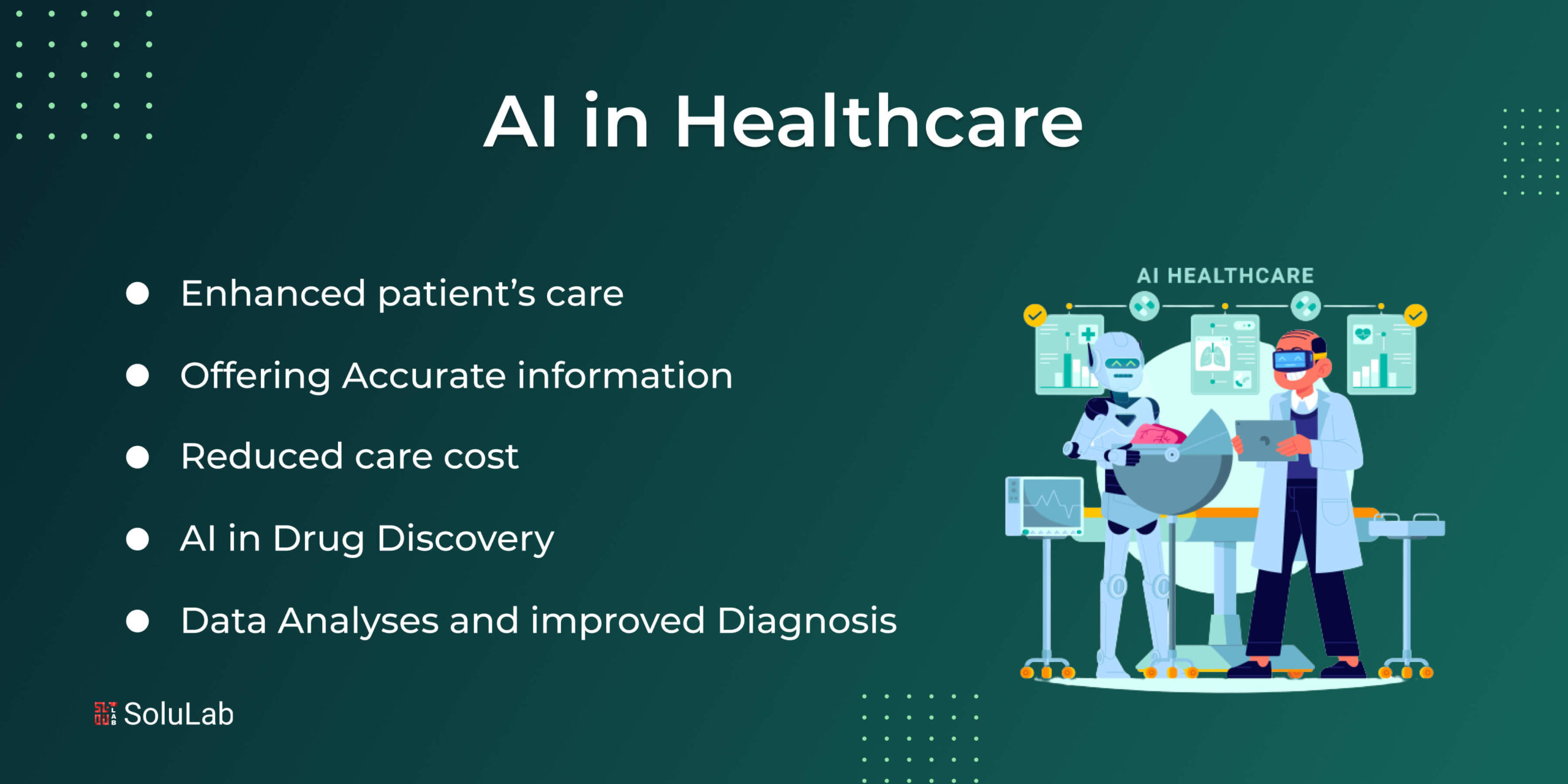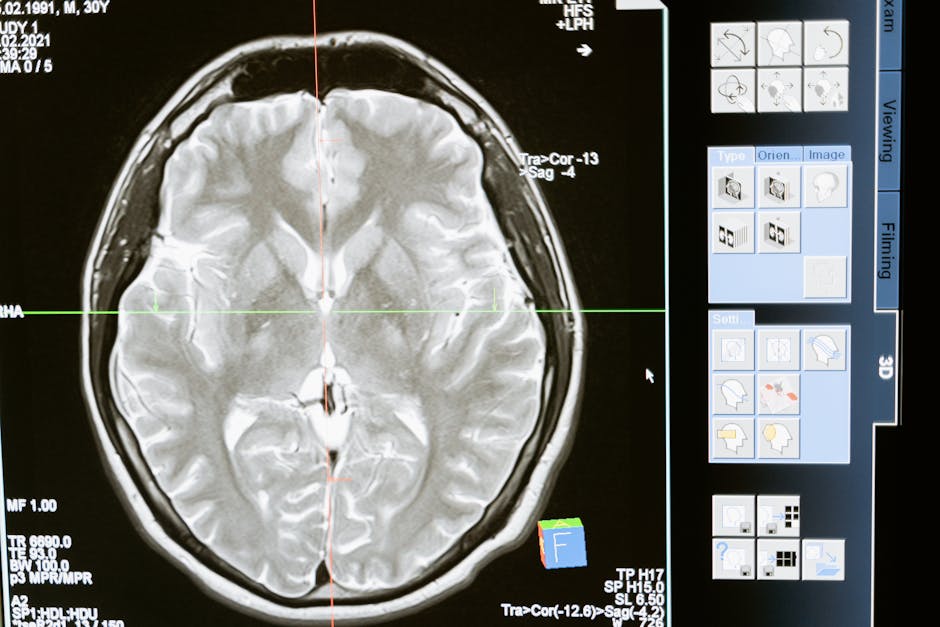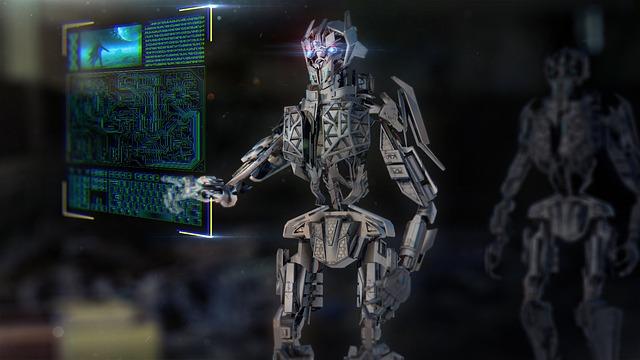Welcome to the wild world of artificial intelligence and healthcare, where machines can diagnose your ailments faster than you can say “WebMD.” In this article, we will dive headfirst into the realm of robots, algorithms, and all things futuristic in the medical field. So buckle up, because we’re about to explore just how much of an impact AI is having on keeping us healthy (or at least trying to). Let’s hope the robots have a good bedside manner!
Understanding Artificial Intelligence in Healthcare
Artificial Intelligence in healthcare is like having your very own medical sidekick, but without the annoying side comments. AI can assist medical professionals in diagnosing diseases, creating treatment plans, and even predicting potential health issues before they arise. It’s like having a crystal ball, but instead of seeing the future, it’s telling you to eat more vegetables.
One of the coolest things about AI in healthcare is its ability to analyze massive amounts of data in a fraction of the time it would take a human. Think of AI as the ultimate multitasker – it can sift through years of patient records and medical research faster than you can say “WebMD.” Plus, AI doesn’t get distracted by cat videos on the internet (unlike some people).
With the help of AI, doctors can make more informed decisions and provide personalized treatment plans for patients. It’s like having a medical advisor who never sleeps (or gets tired of listening to your health complaints). And let’s be real, we all need a little extra help navigating the complexities of the healthcare system – AI is like having a GPS for your medical journey.

The Evolution of AI Technology in the Medical Field
Who would have thought that artificial intelligence would play such a huge role in the medical field? We’ve come a long way since the days of using leeches to cure illnesses! Let’s take a look at how AI technology has evolved in the medical field:
One of the most fascinating aspects of AI in medicine is its ability to analyze and interpret complex medical data. Doctors can now rely on AI algorithms to help them diagnose patients more accurately and quickly. Gone are the days of trying to decipher messy handwriting on prescriptions!
Thanks to AI, medical researchers can now analyze massive amounts of data to identify patterns and trends that were previously impossible to detect. This has led to groundbreaking discoveries in the field of medicine, helping to save countless lives. Who knew that Siri and Alexa would one day be working hand in hand with doctors?
With the advancements in AI technology, the possibilities in the medical field are truly endless. From robot-assisted surgeries to personalized treatment plans based on genetic data, AI is revolutionizing the way we approach healthcare. Who knows, maybe one day we’ll have robot doctors performing check-ups instead of the traditional white coat wearers!

Benefits of Implementing AI in Healthcare Practices
Are you tired of spending hours sifting through piles of paperwork and trying to make sense of complicated medical jargon? Well, fear not! Implementing AI in healthcare practices can revolutionize the way healthcare is delivered.
With AI technology, healthcare professionals can streamline processes, improve accuracy, and provide more personalized patient care. Say goodbye to long wait times and hello to efficient and effective healthcare services! Plus, AI can help reduce human error, ensuring that patients receive the highest quality care possible.
Imagine a world where diagnoses are made faster and more accurately, where treatment plans are tailored to each individual’s unique needs, and where healthcare providers can focus more on patient interaction and less on administrative tasks. That’s the power of AI in healthcare!
So, why wait? Embrace the future of healthcare today and reap the countless benefits that AI has to offer. Your patients will thank you, your staff will thank you, and most importantly, you’ll thank yourself for making the smart choice to implement AI technology in your healthcare practice.
 Challenges and Ethical Considerations of AI in Healthcare”>
Challenges and Ethical Considerations of AI in Healthcare”>
Challenges and Ethical Considerations of AI in Healthcare
As we dive into the world of AI in healthcare, we are faced with a multitude of challenges and ethical considerations that are as complex as doing open-heart surgery blindfolded. Let’s take a look at some of these hurdles and potential pitfalls:
- Data Privacy: Imagine your medical records floating around in cyberspace like juicy gossip at a high school cafeteria. The security and privacy of patient data are crucial in the age of AI, where algorithms are making life or death decisions based on this sensitive information.
- Bias and Discrimination: Just like your auntie who only invites her favorite cousins to family gatherings, AI in healthcare can have bias in its decision-making processes. It’s important to ensure that algorithms are fair and unbiased, unlike Auntie Judy’s Thanksgiving dinners.
- Regulatory Compliance: Navigating the murky waters of regulatory frameworks is like trying to drive a boat blindfolded in a storm. Ensuring that AI systems comply with healthcare regulations while providing cutting-edge care is a challenge that requires careful navigation.
So, as we venture into the brave new world of AI in healthcare, let’s remember to tread carefully, like a tightrope walker with a fear of heights. By addressing these challenges and ethical considerations head-on, we can ensure that AI enhances healthcare delivery without compromising patient safety or privacy.

Applications of AI in Diagnosing and Treating Patients
Artificial Intelligence is revolutionizing the field of medicine, especially in diagnosing and treating patients. AI-powered medical imaging tools are being used to analyze X-rays, MRIs, and CT scans with incredible accuracy, helping doctors detect diseases like cancer and pneumonia early on.
Another exciting application is virtual health assistants that use AI to interact with patients, answer their questions, and even monitor their symptoms. These virtual assistants are like having a knowledgeable friend in your pocket, minus the annoying habit of always asking for advice.
One of the most groundbreaking uses of AI in healthcare is in personalized treatment plans. By analyzing a patient’s medical history, genetic data, and even lifestyle choices, AI can recommend customized treatment options that are more effective and have fewer side effects. It’s like having a personal health guru who knows you better than you know yourself.
With AI technology advancing at an incredible pace, the future of healthcare looks brighter than ever. Who knows, maybe one day we’ll have robot doctors performing surgeries and curing diseases like it’s just another day at the office. But until then, we can at least enjoy the benefits of AI helping us live healthier and happier lives.
Improving Patient Outcomes through AI Technology
Picture this: a world where artificial intelligence isn’t just for dystopian sci-fi movies, but actually helps improve patient outcomes in the healthcare industry. Sounds like something out of a dream, right? Well, guess what? It’s becoming a reality!
With AI technology, healthcare providers can now analyze massive amounts of data in record time, helping them make more accurate diagnoses and create personalized treatment plans. Imagine never having to wait for hours in the doctor’s office again because AI can quickly pinpoint the issue and provide a solution faster than you can say “WebMD.”
Not only does AI technology streamline the diagnostic process, but it also helps healthcare professionals stay up-to-date on the latest medical research and advancements. Gone are the days of relying on outdated textbooks and Google searches to stay informed. AI is like having a personal medical encyclopedia on hand 24/7, without the risk of falling into a Wikipedia rabbit hole.
So, next time you find yourself in a hospital or doctor’s office, just remember that AI technology is working behind the scenes to ensure you receive the best care possible. Who knew that robots and humans could make such a great healthcare team? Move over, Dr. House – AI is the new medical superstar in town!
Future Implications of Artificial Intelligence in Healthcare
As artificial intelligence continues to revolutionize healthcare, the future implications are both exciting and slightly terrifying. Here are a few scenarios to consider:
1. Improved Diagnosis Accuracy: With AI technology, doctors will have access to advanced algorithms that can analyze patient data and medical images with incredible precision. Say goodbye to misdiagnoses and hello to more accurate treatment plans!
2. Job Security Concerns: As AI becomes more integrated into healthcare, there may be concerns about job security for doctors and nurses. Will robots eventually replace human healthcare providers? Time will tell, but for now, let’s hope they don’t decide to unionize!
3. Privacy Concerns: With the vast amount of data being collected and analyzed by AI in healthcare, there are legitimate concerns about patient privacy. Who can access this data? Will it be used for targeted advertising? Just imagine getting a targeted ad for cholesterol medication while scrolling through Instagram. Yikes!
FAQs
How is artificial intelligence revolutionizing healthcare?
AI is like that one friend who remembers everything you tell them, but this time it’s not just juicy gossip—it’s medical data! From diagnosing diseases faster to personalizing treatment plans, AI is making healthcare smarter and more efficient.
Can AI replace human doctors?
Whoa, slow down there! AI may be good at crunching numbers and analyzing data, but it can’t replace the human touch of a caring doctor. Think of AI as the trusty sidekick to our doctors, helping them make better decisions and providing insights they may have missed.
What are some examples of AI in healthcare?
Oh, where do we start? AI is already helping with everything from image recognition for diagnosing diseases like cancer, to predicting patient outcomes, to even optimizing hospital operations. It’s like having a medical superhero in your corner!
Is there any downside to using AI in healthcare?
Well, AI is not perfect—it can’t cure a broken heart or find your missing socks. There are challenges like data privacy concerns and the need for constant updating to stay accurate. But hey, no one said revolutionizing healthcare would be a walk in the park!
How can AI benefit patients in the healthcare industry?
Imagine a world where your doctor knows exactly what treatment will work best for you, based on your unique genetic makeup and medical history. That’s the power of AI—personalized medicine at its finest. Say goodbye to one-size-fits-all treatments!
—
So, what’s the verdict?
Well, folks, it looks like artificial intelligence is here to stay in the healthcare world. From diagnosing diseases to personalized treatment plans, AI is revolutionizing the way we approach healthcare. So, next time you’re feeling under the weather, just remember – there might be a robot doctor out there with your name on it! Thanks for tuning in to our exploration of the impact of AI on healthcare. Stay healthy, stay curious, and don’t forget to give your friendly neighborhood AI a high-five on your way out!



